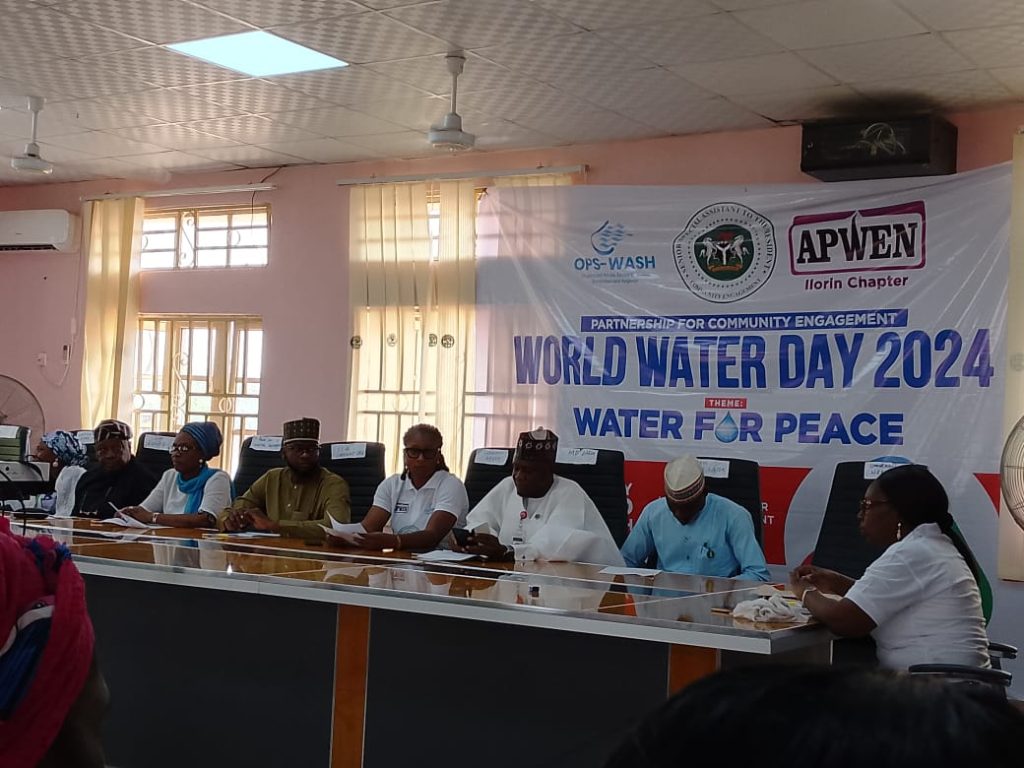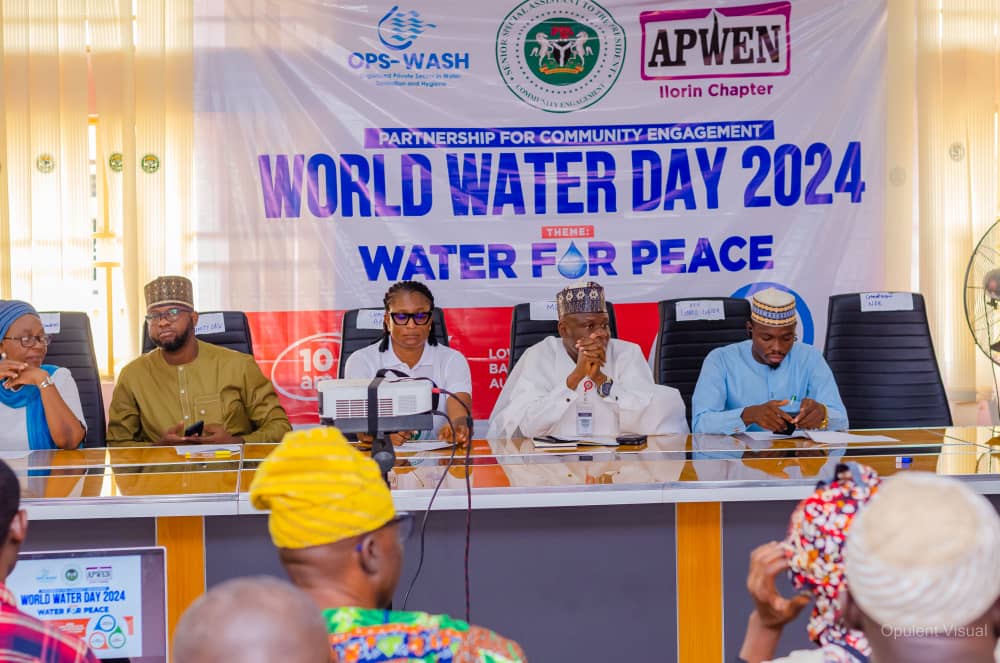By Fatima Mohammed-Lawal
Dr. Adebisi Osim, the President of the Association of Professional Women Engineers of Nigeria (APWEN), lamented on Friday that the average Nigerian consumes only nine liters of water per day.
Osim stated this in Ilorin while presenting a paper in commemoration of the 2024 World Water Day organized by APWEN.
The theme of the day is entitled: “Water For Peace.”
According to her, this falls below the national acceptable minimum standards of 12 to 16 liters per day.
She stated that statistics from the World Bank show that approximately 70 million Nigerians do not have access to safe drinking water.
“Globally, 122 million people have to collect unsafe water from streams or ponds. Two billion people lack safe drinking water, and 114 million do not have access to basic sanitation,” she said.
Osim, who was represented by Mrs. Nihinlola Olawuyi, the APWEN Kwara chapter Chairman, enjoined all stakeholders to utilize water as a potential to foster harmony, cooperation, and peace among nations and communities worldwide.
She observed that water is not only essential for life itself, but it also has the power to transcend borders, cultures, and ideologies.
“Throughout history, water has served as both a source of conflict and a catalyst for peace. It has been a cause for dispute over shared resources, yet it has also been a cornerstone for collaboration and diplomacy.
“However, we must recognize that water also possesses the transformative power to build bridges, reconcile differences, and forge pathways to peace,” she said.
She observed that inadequate access to water and poor management practices majorly contribute to Nigeria’s water and sanitation crisis.
According to her, widespread flooding has also affected 3.2 million people in Nigeria, resulting in over 600 fatalities and displacing over 1.4 million people.
Osim called on governments at all tiers and other stakeholders to collaborate with APWEN towards common goals of securing water for peace.
Also in his presentation, Dr. Lawal Olohungbebe, the Senior Special Adviser to Gov. AbdulRahman Abdulrazaq of Kwara, on Community Development, observed the criticality of water and sanitation in pursuit of sustainable development.
He underscored the importance that the state government attached to partnership with APWEN, Organised Private Sector in Water, Sanitation and Hygiene (OPSWASH), to tackle societal challenges such as water and sanitation.
“The situation is further exacerbated by the effect of climate change, population growth, rapid urbanization, and socioeconomic factors.
Similarly, Dr. Saheed Aremu, the Managing Director of Lower Nigeria River Basin Development Authority, emphasized the need to utilize water for peace in our nation.
He observed that there are many challenges that confront communities in terms of availability of water, including climate change and uncontrolled population.
The Managing Director explained that there is a need to make the invisible, underground water visible and accessible to the generality of the masses.
Mr. Usman Lade, the Kwara Commissioner for Water Resources, observed that water is paramount to existence while reiterating the commitment of the state government to collaborate with key stakeholders to achieve better results.
He disclosed that the state government has achieved 74 percent success in access to water for communities, adding that the state will continue to improve on this statistic.
Lade also stated that the government had already taken initiative in training youths on the repair and maintenance of boreholes in their respective communities.
In her lecture, Mrs. Oluwatoyin Babatunde, the OPS WASH Coordinator in Kwara, submitted that APWEN’s commitment is in support of President Bola Tinubu’s administration on community engagement.
She explained that OPS WASH is an umbrella body conducting private sector engagement in SDG-6.
According to her, the focus is to create and source partners to make an impact and accelerate private sector coordination in Nigeria for SDG-6 and other related SDGs.
The expert explained that APWEN uplifts communities in various ways, offering career counseling sessions for female students in primary, secondary, and tertiary institutions.
She noted that this is to increase the number of global engineering voices of women for Nigeria.
The OPS coordinator therefore calls for private sector organization support in Kwara within OPS WASH objectives.
Babatunde also advised on better understanding of community needs, private sector support, and needs, among others.

